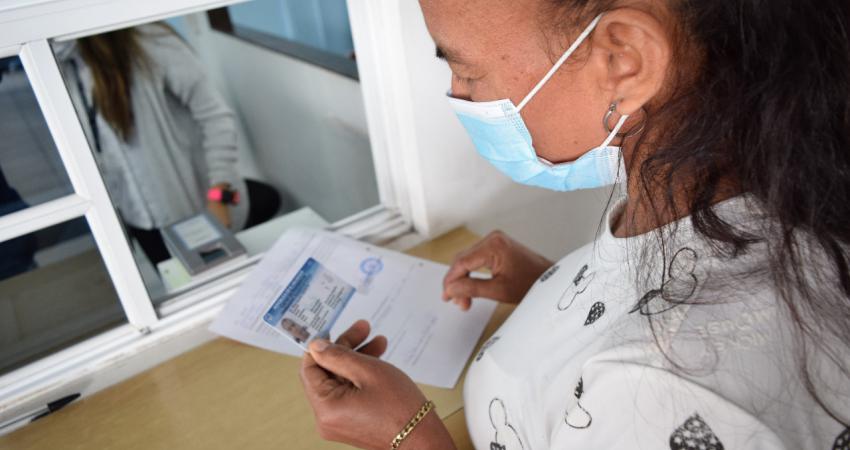IOM outlines needs and priority actions to ensure data protection for migrants in Mexico, Central America and the Dominican Republic

San José – March 15, 2023. Migrants provide personal information to diverse institutions, companies or international organizations such as their name, marital status, nationality or other sensitive data in various countries where they transit or reside. The handling, storage and use of this data is a very important dimension of the protection of migrants and the governance of migration in compliance with the Global Compact for Safe, Orderly and Regular Migration.
Although there are local regulatory frameworks for the protection of personal data and in some countries institutions have been created for this purpose, the region has yet to move forward in ways to ensure proper handling of information on migrants, in line with international standards. This was one of the main findings of the study "Diagnosis of data protection of migrants in Central America, Mexico and the Dominican Republic", presented on March 15, 2023 by the International Organization for Migration (IOM).
"Data collection processes often involve capturing personal and sensitive information from our beneficiaries, who place their trust in us. Proper management of this data must be a priority in order to keep respect for the rights of migrants at the center of any intervention," said Michele Klein-Solomon, IOM Regional Director for Central America, North America and the Caribbean.
This regional study represents a pioneering tool in this area, and its development included analysis of documentary information, as well as focus groups with migrants and interviews with officials of national and local authorities that collect personal data in seven countries in the region. In the case of the institutions, the study revealed the absence of regulations, protocols, forms and databases for the differentiated treatment and protection of migrants' personal information. In most cases, it was not possible to identify a distinctive treatment of information for the protection of vulnerable groups such as children, women or the LGBTIQ+ population.
According to the study, the main authorities and institutions that requested information from migrants were immigration and border authorities, non-governmental organizations, private companies, international agencies, refugee offices, the military, and health, judicial and educational institutions.
On the other hand, the perception of migrants regarding the risks in the management of their personal data is very diverse and responds to their experiences and personal context. Some of the concerns expressed are the collection of their data for the purpose of selling products, the use of the information for scams, extortion or other crimes, the use of their data by security forces for deportation, as well as the lack of explanation of the reasons and purposes for which their personal information is requested.
Moreover, one of the main challenges identified is the exercise of migrants' self-determination with respect to their data, especially when their stay in a country is for a short time. In fact, the management of personal data should not be a limitation for simple and agile access to basic rights such as health or the protection of children and adolescents.
Some recommendations arising from the diagnosis include the promotion of joint regional efforts for the protection of personal data, particularly biometric data, the incorporation of criteria differentiated by gender and migrant status, as well as technical support to institutions and training for officials to create a culture of personal data protection and guarantee the exercise of these rights.
The study, which is available in Spanish and can be consulted here, was conducted with the support of the Bureau of Population, Refugees and Migration of the U.S. Department of State. For more information, please contact Estela Aragón, Coordinator of the Research and Data Unit of IOM's Western Hemisphere Program, at earagon@iom.int
